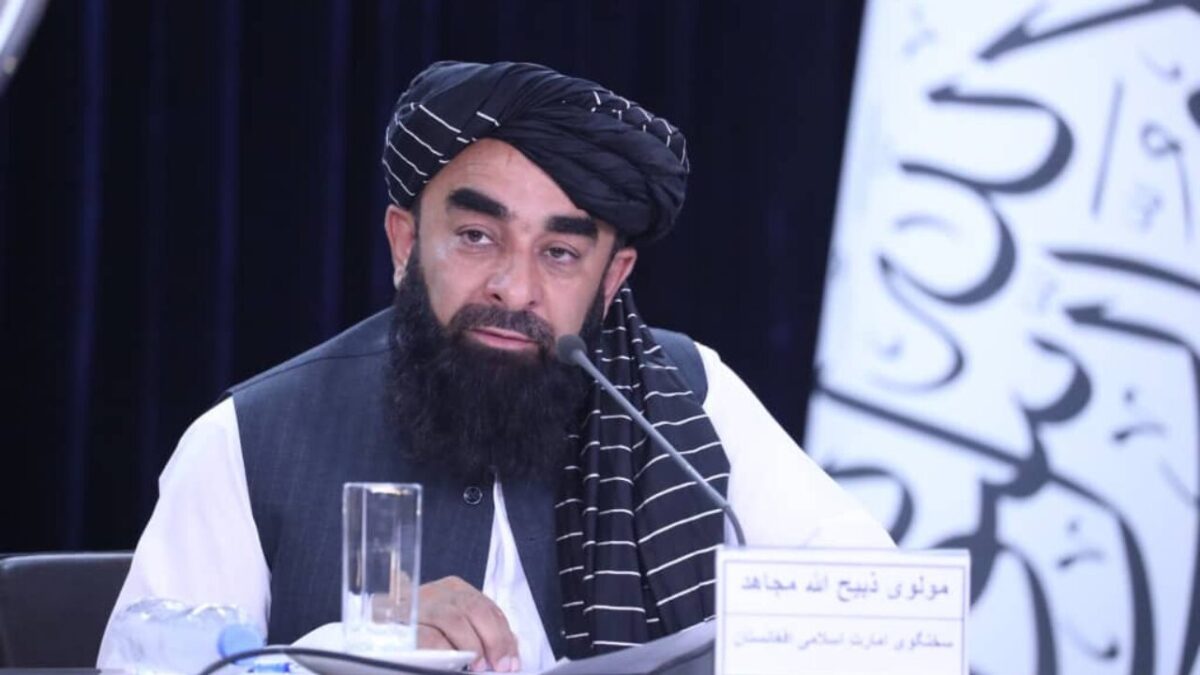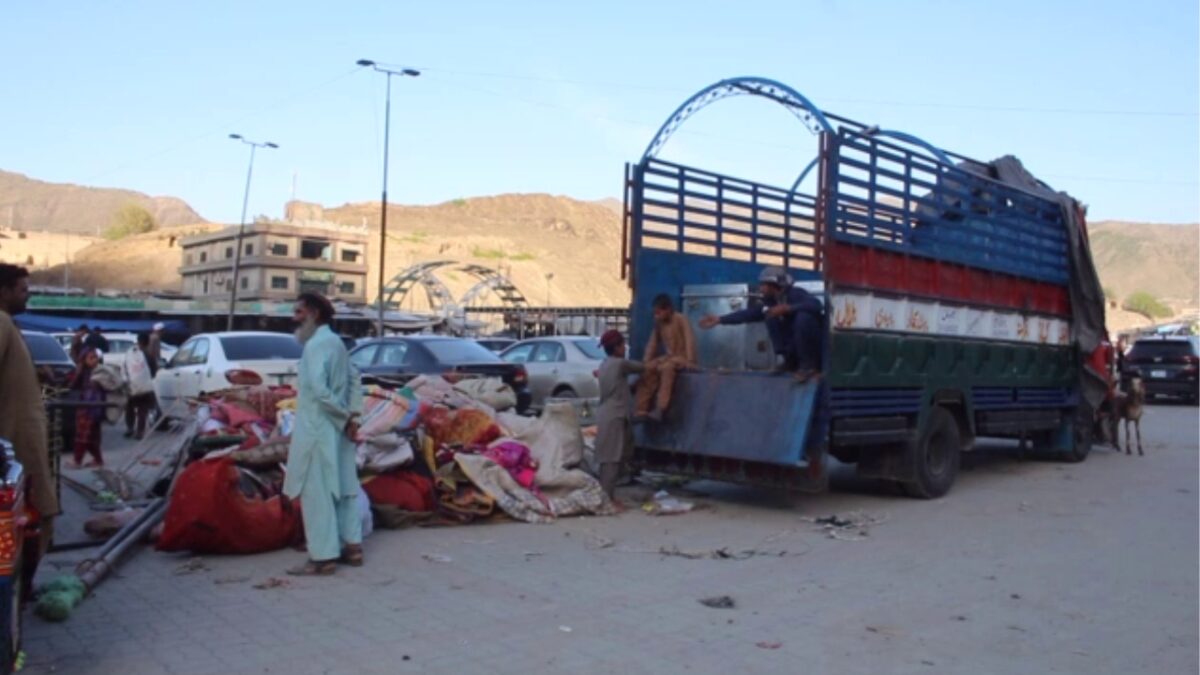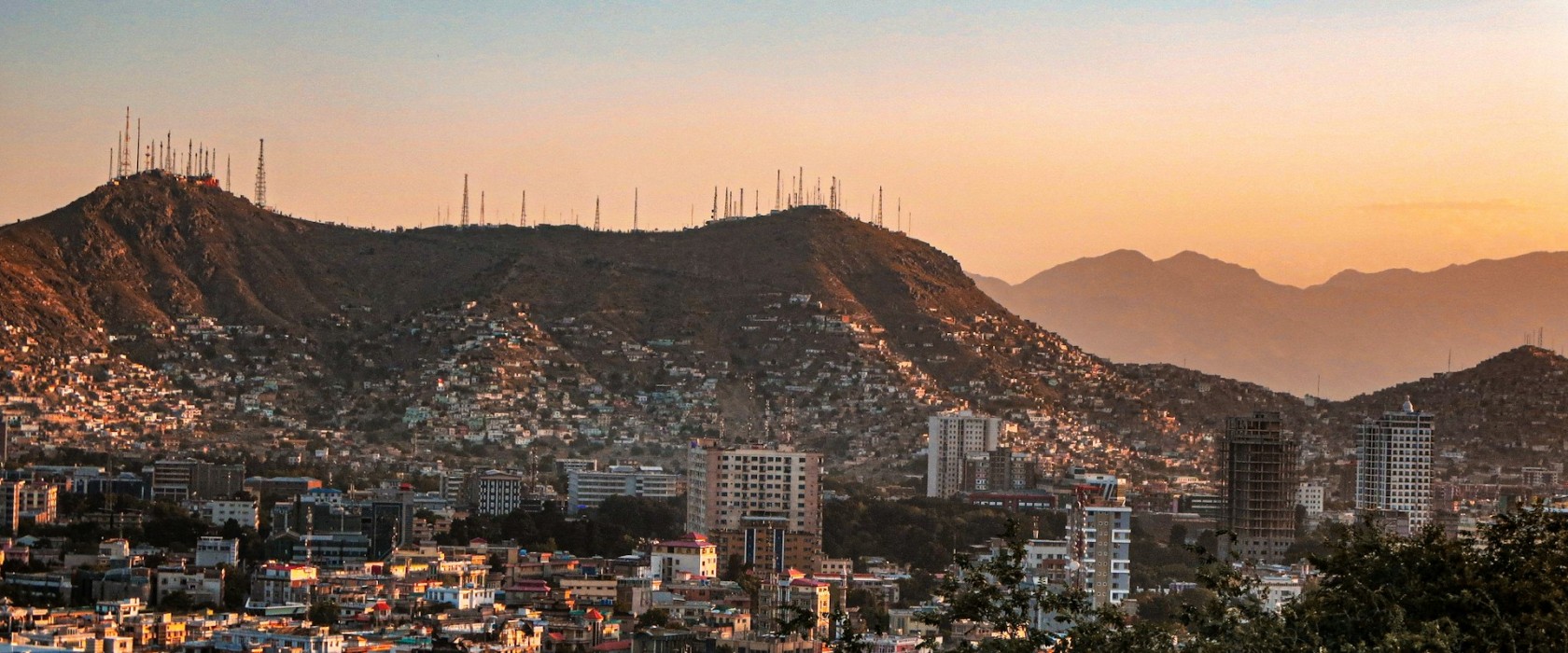For nearly two months, Sayed Wali, a young Afghan truck driver, has watched the sun rise, and the sun set in the fabled Khyber Pass, which connects western Pakistan to eastern Afghanistan. But he’s not here for the view. He’s stuck.
Wali can’t even leave his 10-wheel truck and its cargo unattended for fear it could be robbed or ransacked.
He was taking a shipment of Afghan imports from Pakistan’s southern seaport city of Karachi through some 1,800 kilometers of roads that wind from the Arabian Sea up through to the treacherous Khyber mountains and onward to Afghanistan’s capital, Kabul.
Then politics got in the way.
Simmering tensions between the Taliban-led Afghan government and Islamabad boiled over into fierce border clashes in early October after Pakistan carried out air strikes inside Afghanistan.
Islamabad accused Kabul of sheltering the Tehrik-e-Taliban Pakistan (TTP) rebel group, whose attacks killed scores of Pakistani troops in September.
In a repeat of its key lever to pressure landlocked Kabul, Islamabad sealed half a dozen major and minor border crossings with Afghanistan on October 12. But instead of negotiating for reopening the vital trade routes, the Taliban retaliated by shutting the border with Pakistan in early October.
Wali is not alone; some 8,000 truckers are stuck at the two major border crossings along the 2,640 kilometers of the Durand Line, which separates the two countries.
“We are miserable. The cold is now unbearable and we’ve been stranded here for two months away from our families,” Wali recently told RFE/RL’s Radio Mashaal.
“We are sick of this misery,” he said. “The two should resolve this problem once and for all.”
In the weeks that followed the diplomatic dispute, Kabul struck new deals to increase trade and open new routes with Iran, Central Asia, and India. The Taliban government called on Afghan traders and investors to seek new partners, suppliers and manufacturers away from Pakistan.
“This has been one of the most debilitating and tragic closures,” said Imtiaz Gul, executive director of the Center for Research and Security Studies, a think tank in Islamabad.
“This has badly impacted tens of thousands of people from both sides — farmers, daily wage workers, traders and truckers,” he said.
Irreparable Losses
Nearly five decades of war and political turmoil have entangled the two countries in a complex web of population movements, trade, transport and mostly free movement across their porous border.
Before the border closure, bilateral trade between Islamabad and Kabul was between $2 billion and $3 billion annually, according to the Pak-Afghan Joint Chambers of Commerce and Industry (PAJCCI).
Islamabad was the dominant partner. Its exporters accounted for most of the trade and included industrial goods, pharmaceuticals, cement, and food. Kabul, on the other hand, sent its fresh and dry fruits to Pakistan. The country served as a major transit route for Afghan imports, generating considerable revenue.
Now Islamabad’s predicament is visible. Every winter, it sold more than $50 million worth of citrus fruits to Afghanistan and, via its routes, to its western Central Asian neighbors. But this year’s crops are being sold cheaply domestically.
Shahid Hussain, the senior vice president of the Sarhad Chamber of Commerce and Industries in the northwestern city of Peshawar, says the trade war has already caused irreparable losses to traders and investors in both countries.
“There is no way traders can recover from these losses,” he told RFE/RL’s Radio Mashaal. “Everything they had built over the past few decades has been ruined.”
In Peshawar, the fallout from the continued border closure is everywhere.
The city’s once-bustling gemstone market is silent. Most of its shops and offices are closed, as no raw stones used in ornaments and jewelry have crossed into Pakistan from Afghanistan.
Most of the minerals processed and refined in this market are mined in various parts of the Hindu Kush mountains, which shape and dominate the Afghan landscape.
“If the border continues to be closed, it will affect thousands of workers and associated businessmen,” said Abdul Jalil, the president of the Peshawar Gemstone Association.
‘Traders Cannot Absorb More Losses’
In Kabul, Younas Mohmand, a business leader, says insulating trade from the troubled bilateral relations between the two neighbors might provide a good beginning toward restoring ties.
“Business ties should resume in return for future guarantees from Pakistan,” he told RFE/RL’s Radio Azadi repeating the Taliban’s key demand from Islamabad. “Our traders cannot absorb more losses.”
Graeme Smith, a bestselling author and regional analyst, says Kabul will need Islamabad for major projects aimed at transforming it into a trade, transport and energy hub between Central Asia and South Asia.
“Like it or not, most of the big economic opportunities will require doing business with Pakistan,” he said.
First conceived nearly three decades ago, the Turkmenistan-Afghanistan-Pakistan-India (TAPI) gas pipeline project remains a pipe dream.
Similarly, sending Central Asia’s abundant hydropower to Pakistan and linking the region to Islamabad via a railway line would require stability within Central Asia and stable relations between Pakistan and Afghanistan.
By RFE/RL

 Afghanistan Peace Campaign
Afghanistan Peace Campaign





